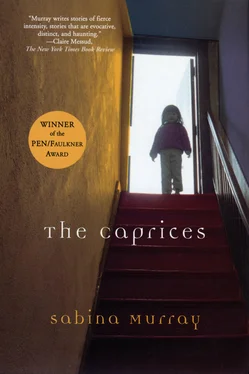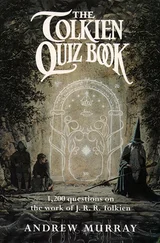1. The City
Manila suffered during the war. How many times have I heard this? There are tales of the city weeping in the dead quiet that followed MacArthur’s triumphant entry and of her shame at the rubble that greeted him. She wept in pain as bombs blasted away the monuments that marked her time as mistress to the Spaniards and destroyed the infant democracy, a gift from when she bedded the Americans. She mourned for the loss of Chinese and Indian baubles, and for the surrender to the Japanese — her Malay features disfigured by a history of rape and failure. Why would she suffer this degradation?
The image of Manila fleeing down the southern tip of the island of Luzon comes to mind. She bears great stone churches perched on her shoulders, universities in her arms, commerce belted about her waist, and a host of barrios tangled in the hem of her skirt. In pursuit are a plague of tanks and sword-wielding conquerors of the Co-Prosperity Sphere. I picture an indigena Lady Liberty warily dipping her toe into the South China Sea.
A city does not suffer. A city knows no pain, nor can it shrink from it. She merely waits for someone to liberate her, and if the liberation is successful, the war recedes into the pages of history. I shall return Manila to her rightful place at the mouth of a great bay. She curls around it with an arm flung to the east. Her legs snuggle the southern coastline, her sorrowful gaze aimed toward Bataan and Corregidor — if a city could gaze, which it can’t any more than it can suffer. Walls are rebuilt, buildings constructed, people reenter the city carting the memories back, much as in the previous year they carted off the dead.
2. Intramuros
The Japanese did not march into Manila. They came quietly — more like the Chinese merchants than the Spanish soldiers. Intramuros — which was a neighborhood bound by stone walls, the legacy of the Spaniards — did not have a history of being hostile to outsiders. My family was of mixed blood; they ate the Chinese moon cakes and blasted firecrackers, learned Spanish, harvested rice in the provinces, and remembered all the pagan superstitions. They believed that the Jesuits were second only to Christ himself and were hospitable to the Japanese merchants who set up their bodegas in the Walled City during the twenties, side by side with the churches, mumbling their rolled l ’s at the brown-robed friars who purchased soap and bags of sweets there. The old city, with its rat-infested canals and crumbling monuments, was such a mess of humanity that it would have been hard to single out the Japanese. They crept in like everything else and were patient and persistent, just like the succulent vines slowly tearing at the wall itself.
3. My Grandmother
There’s a story about my grandmother refusing to leave Intramuros. Most of her children had already been shipped off to Nueva Ecija, where the rice fields were. The Japanese had already occupied Manila, but she didn’t want to leave her house. She would stand in her kitchen looking at all the pots and pans, thinking, I don’t want Mr. Matsushita getting his hands on these. This is the Mr. Matsushita who probably sold her all the pots in the first place and one fine morning appeared on the doorstep of his shop in full military regalia. Long live the emperor and all of that. I wouldn’t want him to get his hands on my pots either. One day a Japanese soldier who was not much taller than my grandmother (and she was four foot eleven) informed her that the house was needed by the emperor. My grandmother didn’t much like the idea of her house being a collaborator, but the emperor’s representatives insisted that it was not her choice, nor the house’s.
I picture her with one hand fixed firmly to the doorknob of the kitchen door (hand carved in the likeness of Saint Joseph’s face) and the other wrapped tightly around the wrist of her smiling baby, who can’t tell the difference between visitors and invaders.
My grandfather, a sweet, irresponsible doctor who spoiled my mother to the point that she is still hard to live with, was standing knee deep in water in Fort Santiago with other members of the Philippine elite and his fourteen-year-old son. The Japanese had informed the doctor that he could not leave in much the same tone as they’d informed my grandmother that she could not stay. She and the baby, Elena, moved into the church, ate leaves, and occasionally ventured over to the American POW camp, where her father-in-law, a Texan left over from the Spanish American War, would pass her handfuls of rice through the bars.
4. Granddaddy
Granddaddy would not leave the Philippines. He’d left Texas at sixteen and never returned. The story is that he was riding his horse to buy a loaf of bread — something I’d like to believe, but it has the stamp of Filipino romanticism of the Wild West all over it — and never came back. Next he was in Houston. Next he was cooking huge vats of beans on a naval vessel bound for Manila. Then there was something about a railroad that has since mysteriously disappeared. Then he married, had a son, never left. He didn’t want Mr. Matsushita to get anything either. I’m not sure when Granddaddy switched residences, but I imagine the Japanese took him first. Finding him must have been a happy surprise for the sons of the Rising Sun: the enemy, drunk and old, wandering around in his house yelling obscenities. They stripped him naked, poked at him with their rifle butts, and had a grand old time.
Granddaddy ended up with the Americans in Santo Tomas, where his son had received his medical degree in the twenties. Granddaddy would joke about it — son class of ’25, father class of ’45. Things were bad then. In fact, the only up side of internment seemed to be that you met famous men like General Wainwright, a cavalry man with a heavy limp, whom MacArthur had left to hold the fort. Granddaddy had some questions for the general — for example, “Is MacArthur returning?”—but the fall of Bataan seemed to have left Wainwright with little to say.
Granddaddy would save his food and pass it through the bars to his daughter-in-law and granddaughter. He wrapped it in banana leaves. They ate the food. They ate the banana leaves. He would look at little barefoot Elena in disbelief — an angel shot out of the sky and stuck in hell. He would say, “Any news on Richard?” And my grandmother, with her hard, Spanish mouth and sad eyes, would simply shake her head. Granddaddy would watch them leave as they made their way back to the church. She was a brave woman, he thought, with a faith he envied in a God he didn’t understand. “Elena and I are safe,” she said. “We’re sleeping under the altar.”
5. Uncle John
One day, an American soldier named John Hachey was wandering through the old city carrying some important piece of paper, and a little boy ran up to him and begged him not to bomb the church because it was full of civilians. John Hachey ran through the streets like he’d never run before, his heart pounding and tears streaming down his face, and he reached the man with the maps and the authority and told him, “Don’t bomb the church!” Who would believe that John Hachey — with his southern accent and thinning blond hair that stood up like a wheat field — would return to Maryland and have a daughter named Mary, and that this woman would marry my Uncle Jappy?
6. Uncle Jappy
My Uncle Jappy survived the war, got a degree in medicine (Santo Tomas ’56), moved to the U.S., and began introducing himself as “Carlos.” I knew him as Uncle Jappy. The more Spanish-influenced in the family called him Tito ’appy. He was not Japanese, nor was he a collaborator, being a mere five years of age when the war started and hardly a man when it finished. His only guilt was in his genes, which expressed the Chinese blood of my family to a startling degree — he could have passed, perhaps, for Japanese. I cannot explain why the family thought it was a joke to call him Jappy during the war, and even more difficult to explain why they used that appellation with all the love and affection implied by nicknames when the war was over. We called him Jappy until the day he died, which was long after his father and brother had left this earth, escorted into the afterlife by the Japanese.
Читать дальше












